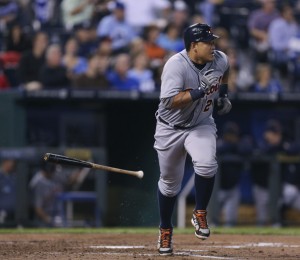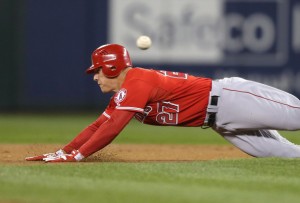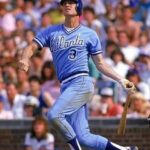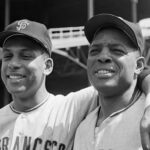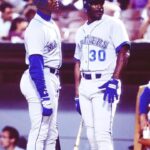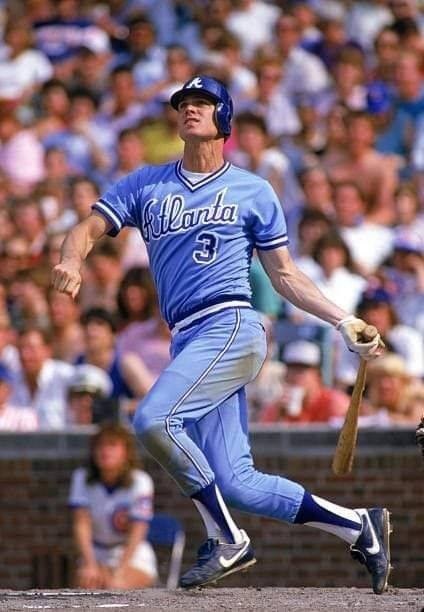Miguel Cabrera Posts A Season For The Ages, But Is It MVP Worthy?
With his impressive late season surge, Miguel Cabrera has become the first major league player since Carl Yastrzemski in 1967 to win the Triple Crown as the league leader in home runs, batting average and RBI. However, it is also likely that Cabrera will join another former Red Sox star on an even more amazing list.
All-time great Ted Williams won the Triple Crown twice, but interestingly, he finished second in the AL MVP Award voting in both of those seasons. In 1942, Williams finished 21 votes behind Joe Gordon of the New York Yankees. In 1947 the Splendid Splinter lost the MVP to Joltin’ Joe DiMaggio by a single vote.
Others who won the Triple Crown without being named MVP of their league include Lou Gehrig in 1934 and Chuck Klein in 1933.
Despite his amazing statistical year and hot final month that helped push the Detroit Tigers into the playoffs, many expect Cabrera to finish second in the MVP voting to Los Angeles Angels rookie outfielder Mike Trout.
In both of the seasons when Williams finished second, his team did not make the playoffs. The 1942 Red Sox finished second, nine games behind Gordon and the Yankees. In 1947, the Red Sox placed third in the American League, 14 games behind DiMaggio and the Yankees.
Though the 2012 Tigers actually finished with two fewer wins than Trout and the Angels, because of the current division format, Cabrera will be advancing into the playoffs while Trout starts his offseason.
Given the amazing statistics of Cabrera, .330 batting average, 44 home runs and 139 RBI, you would think there would be little discussion about the MVP Award. Especially when compared to the numbers of Trout in those same categories (.326 average, 30 home runs and 83 RBI). However, because Trout served as a leadoff hitter, he out-performed Cabrera in several non-power categories that helped illustrate the rookies all-around value including runs scored (129 to 109), on base percentage (.399 to .393) and stolen bases (49 to 4).
Who Should Be The American League MVP?
- Miguel Cabrera (75%, 36 Votes)
- Mike Trout (25%, 12 Votes)
Total Voters: 48
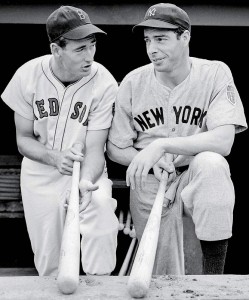
Ted Williams won the Triple Crown in 1947, but lost the MVP Award to Joe DiMaggio by one vote. He also won the Triple Crown without winning the MVP Award in 1942.
Trout also out-paced Cabrera in a category known as WAR, or Wins Above Replacement. This category created as part of the Sabermetrics craze is supposed to measure the value of a player compared to if someone else was in the lineup in his place. Cabrera’s WAR of 7.5 ranks third in the league, but pales in comparison to the 10.7 rating of Trout.
Some consider the WAR to be the ultimate statistic for measuring value, but for those who aren’t totally sold on Sabermetrics, it seems artificial and geared more to reduce the value of traditional statistics (home runs, RBI) than to really reflect anything concrete.
While this is the first time that Sabermetrics has really been a major part of the argument for the MVP Award, it has played a major role in several Cy Young Award races in recent years. Because pitching victories are valued less than overall quality starts and ERA, in 2009 neither Cy Young Award winner had more than 16 victories and in 2010 Felix Hernandez won the award with a 13-12 record.
The increased credibility given to Sabermetrics also played a role in the surge that led Bert Blyleven to go from being on 14.1% of Hall of Fame ballots in 1999 to entering the Hall with 79.7% in 2011 without pitching a single game during that stretch.
There has always been, and will always be, an argument as to whether the MVP Award is about individual statistics or value to the team.
In 1965, Minnesota Twins shortstop Zoilo Versalles was named the American League MVP despite hitting .273 with 19 home runs and 77 RBI. However, Versalles also won the Gold Glove at shortstop and scored 126 runs as the leadoff hitter for a team that won 102 games and the American League pennant.
In 1987, Andre Dawson of the Chicago Cubs won the NL MVP Award despite playing on a Cubs team that finished with a 76-85 record and 18.5 games out of first place. During that season, Dawson was rewarded for his amazing statistics as he hit .287 while leading the league with 49 home runs and 137 RBI.
One of the tugs for Trout to win MVP is that he truly had one of the finest rookie seasons in baseball history. Many have compared his breakout year to that of another rookie centerfielder in Fred Lynn, who in 1975 became the first rookie to win the AL MVP Award while helping lead the Red Sox to the AL Pennant.
There is little doubt that Trout helped turn around a struggling Angels squad. The Angels were 6-14 when he was inserted into the lineup as the leadoff hitter on April 28th. Though Trout went 0-for-4 in that game, he quickly started to make his presence known and the Angels were 83-58 the rest of the season and nearly made the playoffs.
Yet, while Sabermetrics would point to Trout as the primary reason for the turnaround, there are in reality several other factors that can be identified as playing a role in the Angels’ surge. One is the play of high priced free agent Albert Pujols, who was hitting .225 with only four runs driven in and had yet to crack a home run on April 28th. He soon heated up and finished the season with a .286 average, 30 home runs and 105 RBI.
To think that a statistic like WAR can accurately depict that Trout was more valuable than Cabrera to team success is, in my opinion, over-stated. Entering action on September 11th, the Tigers trailed the Chicago White Sox by two games. From that point, Detroit went 15-7 to surge into first place in their division. Cabrera hit .353 with 9 home runs and 23 RBI to help his team earn a second straight playoff spot. By comparison, during the same stretch Trout hit .294 with three home runs, six RBI and 15 runs scored while the Angels went 12-9.
While there is little doubt that Cabrera was the more valuable player over the final three weeks, his surge made little dent into Trout’s edge in WAR, which seems ridiculous considering that without such a final three weeks by Cabrera the Tigers would be alongside the Angels on the outside of the playoff picture.
There is little doubt that Miguel Cabrera has posted one of the best offensive performances of all-time and will go down in history as baseball’s first Triple Crown winner in 45 years and 14th since 1900. Whether that performance was good enough to win him an MVP Award is now out of his hands.
